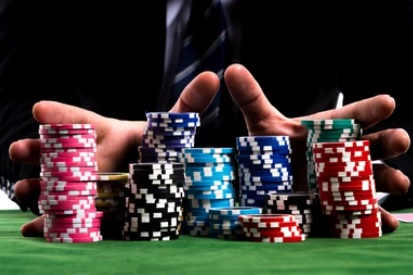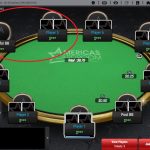
I am a big advocate of reviewing hands in order to improve your poker game. In fact, as internet players, it is one of the most powerful tools we have. Looking at a hand with the luxury of time and the ability to seek a second opinion can work wonders for your ability to spot leaks and identify better lines than the one you originally took.
What many players don’t realize is that reviewing past hands can also be good for managing your psychological game. In my Poker Tracker database, I have four hands that I have kept and frequently refer back to, not because they teach me anything in particular about the technical aspects of the game, but because when I am running badly and lamenting my misfortune I can remind myself about the role of luck in poker and how the pendulum of variance swings in both directions with equal vigor. Each of these hands, in subtly different ways, helps put bad beats and downswings in perspective for me.
Cracking Aces
This was from a 6-handed 2/4 game. I was in the big blind holding Kd 6d. The cutoff (a player I had marked as fairly solid) open raised. The small blind (no notes) called and so did I. The flop came Q66 with two spades. The small blind and I both check to the cutoff who bet. The small blind called, I raised, the cutoff re-raised, the small blind folded and I capped. The turn was a red Jack, I bet and cutoff called, the river was an off-suit 5, I bet and was called again. I won the 11 big bet pot and looking at the hand history showed my opponent had AA.
This hand was from a couple of years ago, quite a while before I turned pro. At the time I was running quite badly and particularly frustrated with how often my Aces and other big pairs were getting cracked. I was astute enough to know that I was probably overstating the problem in my mind and that everybody gets their aces cracked sometimes. I promised myself that I would write down the next time I cracked aces myself and this was the result.
When I sat down later and reviewed this hand, as I promised I would do, I realised how significant it was. Not unusual in any way, but nevertheless significant from a personal perspective. From my point of view, I had flopped a very good hand and value bet it all the way to the river. From my opponents point of view, he had raised his aces and must have been pleased to get a couple of customers. He then got what must have looked like a decent flop and it cost him a lot of money to find out that he had been out-flopped.
I realised that I played hands like this all the time and gave little thought to my good fortune. I saw that there are times when I get lucky too, probably a lot more than I realise. My aces getting cracked never quite felt so bad after that day. Every time I got peeved at a big pair going down in flames I would look up this hand and feel just a little bit better. Poker is cruel sometimes, but it is even-handed in its cruelty.
Misplaying 99
This was a far more recent hand, occurring just a few months ago. It was a 7-handed 10/20 game and I was having a pretty good session. I had probably played over 20,000 hands against this particular opponent and felt I knew them pretty well. He is a solid player, who tends to bet, raise call and fold in mostly the right places, but lacks any real imagination or creativity in his play and as a result is quite predictable.
I had 99 on the button. The villain raised from the hijack (one behind the cutoff) and I re-raised, both blinds folded, the villain capped and I called. The flop was J63. I called the flop and the turn, planning to call any non-ace river. As it happened on this occasion, I spiked a lucky 9 on the river and got paid off on a raise, getting a sarcastic comment from my opponent who held KK.
My line on this hand certainly deserves some scrutiny. The passive call/call/call line is a line I will often employ against tight-aggressive players in this situation. In a largish pot where I have a good enough hand that I want to go to showdown, but raising could force me into some difficult decisions. Unfortunately, it is not a line I should have employed against this opponent. I had played enough against him to know that he doesn’t usually cap with AK and if he did, he certainly wouldn’t 3-barrell bluff with it. The flop should have been raise or fold, and if I raised, I should have folded if my opponent fought back. Calling down in this situation was a poor choice.
But it worked out okay. I had made a bad play and got paid for it, the beneficiary of something that I perceived I had been the victim of time and time again. Obviously this is not the only time this had happened, probably not even the only time in that session. Often you will make a good play and get punished for it and sometimes the shoe will be on the other foot and you will make a bad play and get rewarded. Only we don’t tend to remember those times so often.
Lucky Bullet Dodging
This hand was also quite recent and illustrates an important concept that many players misunderstand or misinterpret. I had Ac Js in middle position in a very loose 10-handed 5/10 game. There were two limpers in front of me and I raised for value. The cutoff and button both called as did both the blinds, giving us a 7-handed 14 small bet pot on the flop.
The flop was a dreadful looking Jh Th 7h. I had top pair top kicker, but the board was very dangerous and if I was ahead I was extremely vulnerable against so many opponents. I remember chuckling to myself thinking that there was no way in hell I was going to win this hand, but would probably lose a lot of money trying. It was checked to me and I bet. 5 out my 6 opponents called. The turn was an innocent looking black 4, so I bet again and 3 opponents called this time. The river was a second seven and I was pretty certain I had been drawn out on. It took a lot of willpower to bet, but I felt it was the correct play and I braced myself for the inevitable. However, one opponent called, the others folded and I won the substantial pot.
Despite my near certainty that one of my many opponents would draw out on me, I had dodged all the bullets and won the pot. A big pot, that surely would have been a lot smaller if I was playing against good players. Sure, when your vulnerable hands get a lot of callers you do get drawn out on a lot, but when you don’t, the result is more than worth it. In this hand the odds were particularly stacked against me because I had so many callers, my hand was very vulnerable and the flop was very coordinated. In fact, I didn’t know this at the time, but my hand was only slightly better than 2 random cards. But less extreme versions of this hand occur all the time and maybe you forget these times too easily. The best hand does sometimes hold up.
Oops Misclick
This hand is included more for amusement than anything. It was a 4/8 hold’em game and I was in the cutoff with a magical 93o. A middle position player raised and I re-raised.
I guess an explanation is warranted here. I don’t routinely re-raise 93o, but on this site I do very occasionally make a play like this. Not because of any particular nuance of the game or the players there, but because of a ‘feature’ of the software. The raise and fold buttons are on the opposite sides to normal (the raise button is on the left, and fold on the right). Usually I am concentrating well enough to click on the correct button, but maybe once every few weeks I pull a wrong-un. In this particular case it was late in the session and I was playing multiple tables, the others of course having the buttons in the more conventional order.
From the theme of the article so far, you can probably guess what happened next. I missed the flop completely, but made a continuation bet on the flop and turn because at that point it seemed like the best way to maximise my expectation on a hand gone very wrong. On the river I hit an unlikely gutshot runner-runner straight and took down the pot, much to the dismay of my opponent who launched an unprintable tirade in the chat box. Not only had I lucked my way into a big pot, I had scored great advertising value too.
I guess the moral of this hand is that crazy things happen in poker and sometimes things are not always what they seem, especially online. There is probably still a player or two on this site who has something along the lines of ‘idiot – re-raised 93o’ in my notes. It is also another illustration of how sometimes you can make horrendous plays that work out well for you. Any two cards can win after all.
If you have some free time, maybe it’s worth looking through your Poker Tracker database for some medicinal hands like these. They are great to look back on when you are running badly and think you are the unluckiest player in the world. Sometimes it can do you good to look at the other side of variance and realise that you, just like me, just like every other poker player, get very lucky sometimes.
Leave a Review
Submit your review | |






